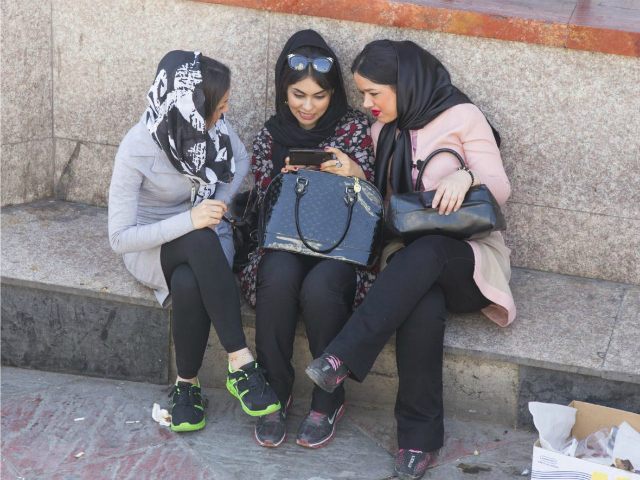In Iran, “moderates” and “reformists” are said to have fallen in love with the controversial encrypted chat app Telegram during an important parliamentary election.
A report from Al-Jazeera quotes an Iranian telecom executive saying that the number of Iranian Telegram users now exceeds the audience for state-run TV news. According to one estimate, a quarter of the Iranian population is now logged into the social media platform. The Al-Jazeera piece is filled with anecdotes of moderate Iranians using Telegram’s chat network to quietly organize, while going about their daily lives.
Meanwhile, mosques push a hardline message of resistance to “infiltration” by the American “enemy,” which is insidiously taking advantage of post-sanctions trade and cultural contact to poison the Iranian mind. Reform-minded Iranians are denounced as “stooges of foreign powers, such as the U.S. and Britain.”
Al-Jazeera says the political campaign gained a “bitter aspect” after Iran’s “Guardian Council” of Islamist fanatics disqualified half of the candidates, including most of the moderates. One can see how that might give reform-minded Iranians the idea to go underground and embrace encrypted communications.
A coffee-shop owner interviewed by Al-Jazeera describes Iran as having a “calmer, more contented atmosphere” since the nuclear deal, which he naturally describes as an Iranian achievement credited to President Hassan Rouhani. “It’s made people happy after eight difficult years,” he said.
The optimistic view is that Iranians will develop an appetite for more happiness and prosperity through trade and cultural exchange with the West, leading them to demand political representation less interested in supporting terrorism, destabilizing other countries, and peddling burn-the-infidels apocalyptic ideology.
What secure chat might help moderate Iranians create has been described as a preference cascade: the moment when oppressed people realize they outnumber their oppressors, and supposedly unpopular opinion turns out to be far more popular than they were led to believe. The easiest way to suppress the reform impulse is to make reformists feel so badly outnumbered that speaking up is pointless.
Preference cascades do not always work out, especially if the existing regime either makes just enough concessions to disperse the wave or has enough muscle, of either the electoral or literal variety, to suppress it. 25 percent of the population is an impressive Telegram base, but not all of them will be “reformists,” and even if they were, 25 percent isn’t enough for a revolution.
Perhaps the most dismaying sign is that the Iranian government — the same system that handles reform impulses by summarily disqualifying most of the reformers from elections — allows Telegram to function unimpeded. If they thought it was a real threat, they would probably shut it down. The moderates can only hope their hardline adversaries wait too long to pull the plug.

COMMENTS
Please let us know if you're having issues with commenting.